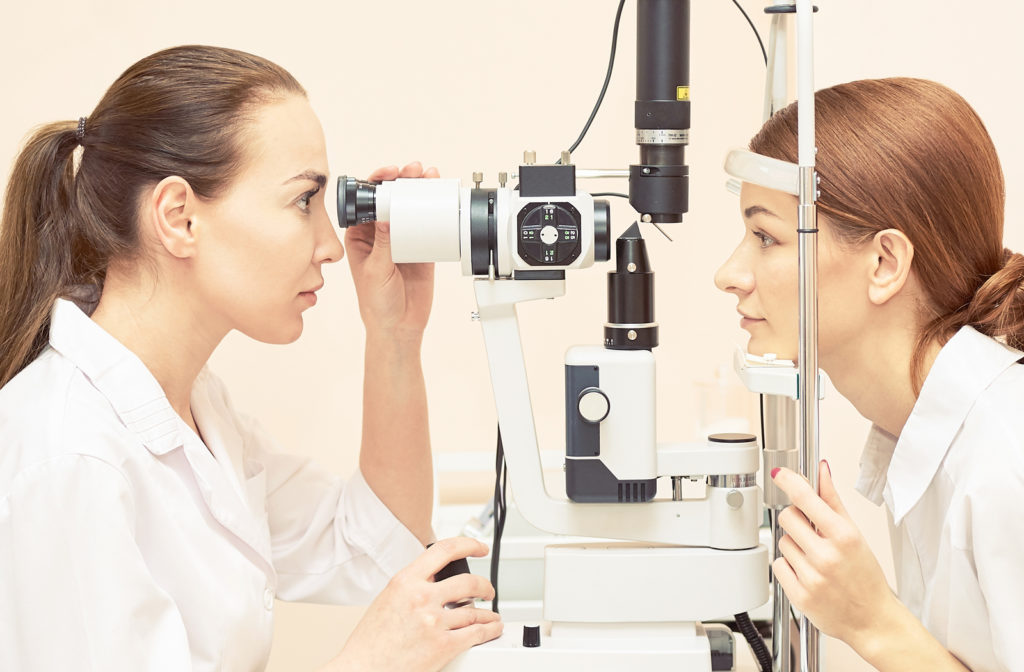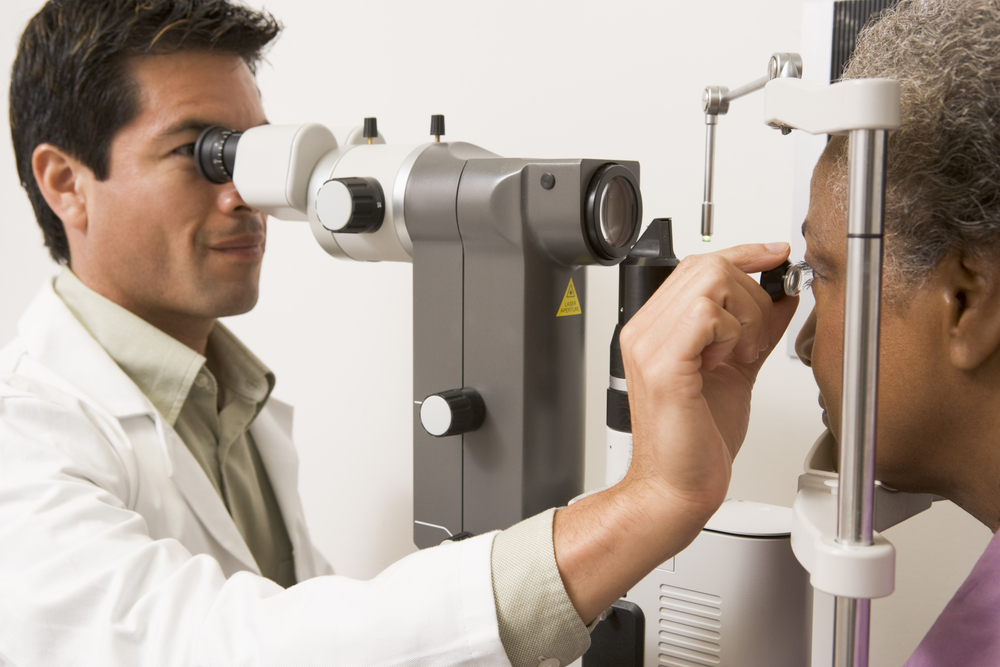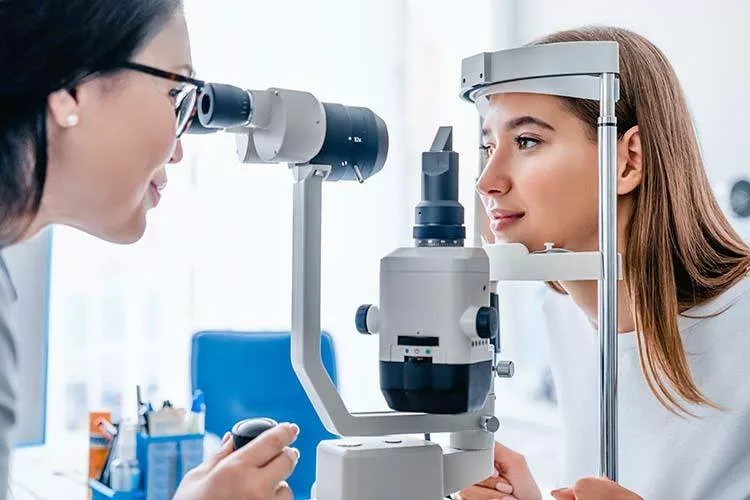Optometrist Montgomery: Quality Eye Care and Vision Solutions
Optometrist Montgomery: Quality Eye Care and Vision Solutions
Blog Article
How an Eye Medical Professional Can Assist Prevent and Manage Common Vision Problems Efficiently
The duty of an eye medical professional extends far beyond simply suggesting glasses; it encompasses a detailed technique to stop and taking care of various vision issues. Routine eye exams are vital for very early detection of conditions like refractive mistakes and glaucoma, enabling timely interventions that can significantly enhance quality of life. By establishing personalized treatment plans and providing assistance on preventative care methods, eye treatment professionals ensure that patients are equipped to keep optimum eye health and wellness. However, the nuances of their approach and the most recent advancements in eye care might question concerning ideal techniques and potential results.
Significance of Regular Eye Exams

In addition, regular eye exams can reveal systemic health issues, consisting of diabetes mellitus and high blood pressure, as the eyes commonly show adjustments in general health and wellness. Developing a regular timetable for eye examinations, typically every one to 2 years, allows for timely interventions and can help protect vision.
People in certain age or with particular threat factors, such as a family members background of eye disease or persistent health and wellness conditions, might profit from more regular exams. By prioritizing these visits, clients can guarantee they obtain individualized treatment tailored to their distinct needs. Eventually, regular eye examinations play an essential duty in both proactive and precautionary eye treatment, allowing individuals to maintain their top quality of life and aesthetic function.
Early Detection of Vision Problems
Early detection of vision issues is essential for effective monitoring and therapy, as prompt treatment can considerably mitigate the development of eye problems. Regular eye assessments work as a crucial tool in determining potential issues prior to they escalate right into a lot more extreme problems. Eye doctors utilize different analysis techniques to analyze aesthetic acuity, eye placement, and general eye health, allowing them to find irregularities at a beginning.
Typical vision troubles, such as refractive errors, cataracts, and glaucoma, might not present obvious signs at first. For that reason, regular screenings are necessary for individuals of all ages, particularly those with a family background of eye disorders or other threat aspects. Early identification enables prompt recommendations to professionals and can result in better end results, lowering the possibility of problems.
Moreover, improvements in innovation have boosted the capability to diagnose problems early, thereby boosting the effectiveness of succeeding treatments. Clients need to be proactive in organizing regular examinations and communicating any kind of changes in their vision to their eye treatment provider. By focusing on very early detection, individuals can take substantial strides towards protecting their vision and maintaining general eye wellness.
Personalized Therapy Program
When vision issues are determined, the solution of individualized therapy strategies becomes vital to attend to the special requirements of each person. Eye physicians utilize thorough assessments, including aesthetic skill tests, refraction evaluations, and ocular health and wellness assessments, to gather crucial information about an individual's certain conditions. This data aids in creating targeted interventions that align with the person's way of life, preferences, and overall wellness condition.
Customized therapy strategies might integrate a variety of options, including corrective lenses, medicines, or advanced therapies tailored to particular problems such as glaucoma, macular deterioration, or diabetic retinopathy. In addition, the inclusion of instructional elements is crucial, as clients are informed regarding their problems and the reasoning behind the chosen treatment methods. This collaborative method fosters a better sense of possession and adherence to the treatment routine.
Furthermore, follow-up appointments are critical for keeping track of progress and making changes as necessary. By prioritizing personalized treatment plans, eye care specialists can not only enhance the performance of treatments however also boost the general high quality of life for their people, encouraging them to manage their vision health and wellness proactively and efficiently.
Preventive Care Techniques
Preventative treatment techniques play a vital function in keeping ideal eye wellness and preventing the beginning of vision problems. Normal eye exams are basic, as they enable eye care professionals to discover prospective issues early, also prior to signs and symptoms reveal. These examinations can recognize refractive errors, cataracts, and glaucoma, enabling prompt treatment.
Along with routine examinations, adopting a healthy and balanced lifestyle significantly adds to eye wellness. A balanced diet regimen rich in vitamins A, C, E, and omega-3 fats can boost aesthetic feature and decrease the risk of age-related macular degeneration. In addition, securing the eyes from hazardous ultraviolet (UV) rays by wearing sunglasses with proper UV defense is necessary in stopping problems like cataracts.
Consistently involving in physical activity likewise advertises total wellness, including eye health. By implementing these preventative care strategies, individuals can significantly enhance their eye wellness and decrease the chance of establishing significant vision problems.

Role in Handling Chronic Conditions
Handling chronic conditions often requires a joint strategy, and eye doctors play a vital duty in this process. Many systemic illness, such as diabetic issues and hypertension, have substantial eye effects that can impact vision. Eye physicians are important in monitoring and taking care of these conditions, as they can discover early indications of difficulties that might not be evident to the patient or main treatment copyright.
For instance, diabetic retinopathy is an usual consequence of unmanaged diabetes mellitus, and regular eye examinations can help with early treatment, stopping severe vision loss. Ophthalmologist can additionally give customized guidance concerning way of living changes and essential clinical recommendations to guarantee detailed patient treatment.
Additionally, conditions look at here now like autoimmune problems may manifest eye symptoms, demanding an eye doctor's competence in both vision treatment and the underlying systemic issues. eye doctor. By working closely with main care doctors and various other experts, ophthalmologist help coordinate treatment techniques that incorporate both total and visual health and wellness

Verdict
In conclusion, the function of an eye doctor is crucial in avoiding and taking care of common vision troubles. Through the application of additional resources preventative treatment techniques and thorough management of chronic problems, eye doctors contribute dramatically to the enhancement of general vision wellness.
By developing customized therapy plans and using advice on preventative care techniques, eye treatment specialists ensure that individuals are outfitted to maintain optimal eye health and wellness.Regular eye examinations are critical for maintaining ideal vision and general eye wellness. Throughout an eye exam, an eye care professional assesses visual acuity, examines the wellness of the eyes, and may carry out tests to inspect for problems such as glaucoma, cataracts, and macular deterioration.
Eye medical professionals make use of various diagnostic techniques to evaluate visual acuity, eye positioning, and general eye health and wellness, allowing them to find problems at a very early phase.
Normal eye exams are basic, as they go to this website allow eye treatment professionals to detect potential issues early, even before signs show. (eye doctor)
Report this page